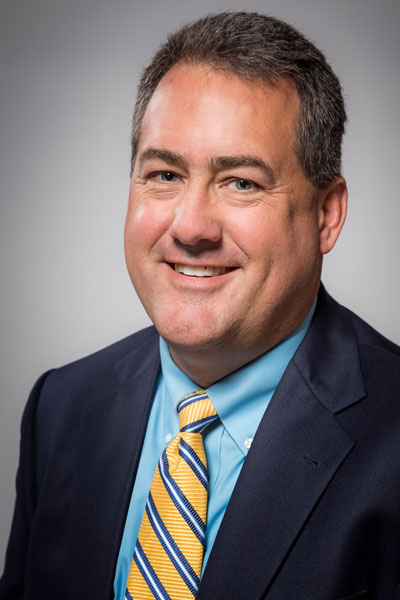Wicked Problems: Target Pilot Project Award
Wicked Problems PDF
Timeline
Application Release Date: June 5, 2020
IRB Submission Deadline: July 31, 2020
Application Deadline: September 25, 2020 5:00 pm
IRB Approval Deadline for NIH Review: September 25, 2020
Notice of Intent to Fund/Decline: October 19, 2020
Earliest Notice of Award: November 20, 2020
Funding Cycle: December 1, 2020 through November 30, 2021- Purpose
The National CTSA Network has identified a list of common and/or emerging problems (“wicked problems”) that require urgent scientific solution. The Clinical and Translational Science Center (CTSC) of the University of New Mexico (UNM) Health Sciences Center (HSC) is soliciting applications from all HSC faculty members—senior as well as junior investigators—for pilot projects that target wicked problems and address challenges related to wicked problems. These pilots should exemplify the CTSC mission of developing novel approaches to translational research and to promote and support the “bench-to-bedside-to-community and practice and back” goal of the National Institutes of Health.
The purpose of this RFA is to support pilot projects that tackle one of the listed wicked problems below relating to data sharing and protection, big data, datasets or research collaboration.
- Data Sharing
- Big data to alter practice/diagnosis
- Use of multiple datasets
- Access to resources to address labor-intensive activities
- Privacy and data protection for research
- Removing institutional bottlenecks/sharing of resources
- Evaluating the impact of translational research efforts
- Implementing scientific review before studies are performed
- Dissemination and implementation Science
- EHR data integration
- Defining Impact for the CTSA Program
- Building a KL2 Scholar Community
- Addressing challenges in recruiting from rural sites
- Hub Stability
Eligibility
Principal Investigators for these pilot awards must have a primary appointment as UNM HSC faculty (junior or senior investigators). Any other investigator who cannot submit the grants emanating from this pilot award through the UNM HSC is not eligible to receive this award.
Project Requirements
All investigators selected to receive funding will be expected to complete the CTSC Good Clinical Practice Training Course within 6 months of receiving award.
All investigators selected to receive funding will be expected to submit progress reports on go/no-go milestones monthly to ensure continued funding.
All investigators selected to receive funding will be expected to submit a Final Progress Report at the end of the funded project and an additional report one year later, detailing progress to date, expenditures, and all submitted publications and grant applications (pending or funded) relating to the pilot project.
Should investigators receive NIH funding during the Pilot period of performance, the investigator must ensure there is no budgetary overlap.
Funding
$10,000 to $25,000
Note: All funds not spent by the end date of the Pilot Project Award will be returned to the CTSC and NIH. No extensions will be granted.
Budget Guidelines:
We strongly encourage investigators to meet with CTSC Deputy Director Mark Burge, (mburge@salud.unm.edu ) to discuss their proposal before submission to ensure that the research aligns with the pilot funding objectives and funding sources. Investigators should also meet with the CTSC Research Concierge, HSC-CTSCResearchConcierge@salud.unm.edu , early in the planning and writing phases of their proposals in order to discuss CTSC resources required. CTSC resources included in the budget will be covered using a non-refundable voucher program. These funds may not be reallocated to other expenses after the grant has been awarded. Rationale for not using AIM or CTSC Core services needs to be specifically justified.
Costs not covered under these awards:
- faculty salaries
- postdoctoral salaries
- non-HSC staff salaries
- graduate student support (stipends, tuition, etc.)
- administrative or office supply costs (office supplies, paper, ink, telephone, etc.)
- meals or hospitality (i.e., no food, beverages, or alcohol)
- travel (per diem, hotel, rental car, mileage, flights, etc.)
- equipment >$5,000 (items <$5,000 are at the discretion of the committee and can be removed from the budget)
- computers, laptops, tablets
- monetary incentives to clinics or providers (e.g. recruitment bonus)
- other items typically supported by indirect costs (publication costs, printing/duplication costs)
Important Notice Regarding Pilots with Human Subjects Research
NIH requires prior approval of all pilot human subjects research. All pilot submissions must have IRB Protocol approved at the time of submission. A pilot cannot use an existing IRB protocol approval. Please note all pilot IRB protocol titles must match the title of the CTSA pilot application. All applicants will be required to submit proof of IRB Approval or proof of non-human subjects research at time of Pilot Application Deadline. Applications without IRB submission prior to the specified date will be administratively disqualified. Applications must have IRB approval no later than the pilot application deadline. Projects that do not have full IRB approval by the pilot application deadline will not be considered for funding.
All projects involving human subjects, required to submit an IRB application, are strongly encouraged to meet with the CTSA’s Regulatory Affairs Manager, Rebecca Brito (505-272-9542) for consultation and planning purposes.
Please refer to the RFA for further specific information. Please contact Christina Anderson


